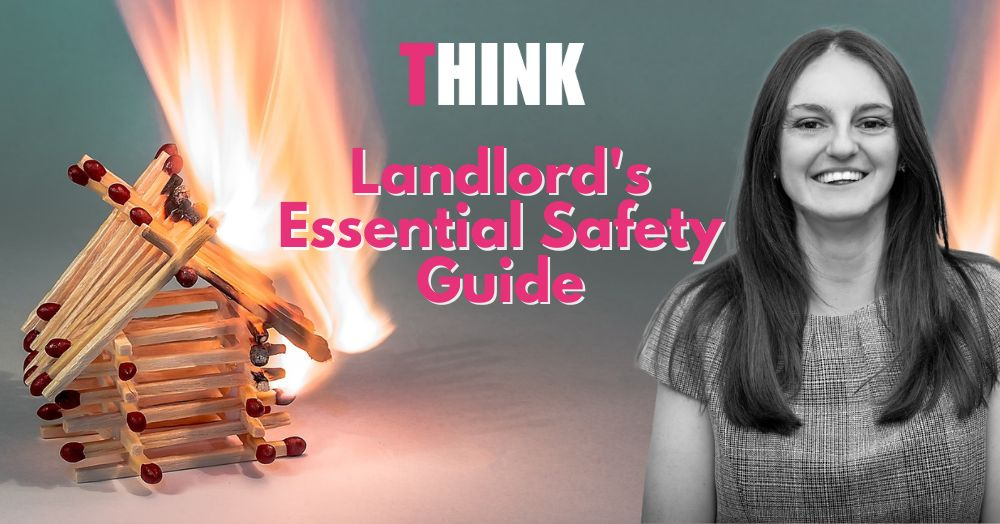
Ensuring Property Safety: A Comprehensive Guide for Landlords on Fire, Gas, Electrical, and Furnishi
In this guide, we break down the crucial regulations every landlord must know – from fire safety and gas regulations to electrical standards and furnishing compliance. Stay informed, stay safe!
Fire and Safety in Properties
Smoke Alarms
From the 1st October 2015 regulations require landlords in the private rented sector to ensure that a smoke alarm is fitted to each storey of the building where a tenant will use it fully or partly as living accommodation. Smoke alarms should be tested to make sure they work at the start of a tenancy.
Once the tenancy starts, the tenant is then liable for testing the smoke alarms regular. Smoke alarms should also be kept away from any obstruction, again this is up to the tenant to keep them clear.
Carbon Monoxide Alarms
All properties with solid burning fuel appliances such as: wood and coal burning must have a carbon monoxide alarm fitted in the room with the appliance, this is a legal requirement.
If landlords do not comply with smoke alarms and carbon monoxide alarm regulations, the local authority must serve a remedial notice on the landlord. If the landlord still does not install the appropriate alarms, then the local authority will arrange for this to be done and the landlord can have a penalty charge of up to £5,000.
Gas Safety
The first gas safety regulations were introduced in 1994 and were amended in 1998 which brought in Gas Safety regulations 1998. The regulations placed a legal duty on landlords, agents and contractors dealing with rented properties the make sure the following is safe:
· Gas appliances
· Pipework leading to the appliances
· Flues from the appliances
A yearly check to assess whether the system and appliances are safe and meet the current standards and to check the meter to make sure there is no escape on gas. This is called ‘a landlords gas safety check/certificate’ and should be carried out by a qualified gas engineer who is on the gas safe register. The gas engineer must produce a gas safety record which must be held for at least 2 years from being carried out. This is mandatory to rent out a property and must be carried out each year.
If work is needed on an appliance, pipework or ventilation it will be stated on the gas safety check, once the appliance has been fixed the invoice showing what has been carried out just needs to be attached to the certificate, there is no need for a new one.
By law, a current gas safety certificate must be given to a tenant before they move into the property. The checks must be the done within a year of the previous check, a copy of a new gas safety certificate must be given to the tenants within 28 days of the check. The gas engineer keeps a copy as well as giving a copy to the landlord.
If the above is failed a landlord or agent could face and conviction in the crown court an unlimited fine or prison.
Electrical Safety
From April 2021 it was a legal requirement for a landlord to have an Electrical Installation Condition Report (EICR). All rented properties must have an EICR now if it is rented out in the UK. An EICR will now be required every 5 years. An EICR must be carried out before a tenant moves into a property, they must also ben given a copy before the start of their tenancy.
Manufacturers are obliged to meet certain standards for the production of electrical goods so that when customer buys it, they know it is safe to use. The 1994 Electrical Equipment safety regulations require that electrical equipment itself, the packaging, the printed instructions or guarantee must be marked with the letter ‘CE’.
Manuals and instructions should be given to tenants for electrical appliances, an agent can make sure these are safe with regular checks.
Furniture and Furnishings Fire Safety
Before the furniture and furnishings regulations 1988 was introduced, many items of furniture had covers that were not fire-resistant and could easily catch fire. Also, if furniture was filled with foam and set alight it gave off toxic fumes which are poisonous. So, when the furniture and furnishings regulation 1988 were brought in it meant that manufacturers:
· Must have fire-resistant filling
· Must have passed a match resistance test or in some cases the cover should have fitted-resistant liner
· Should be able to pass a cigarette resistance test
The regulations state that soft furnishings made or re-upholstered after 1st March 1989 must meet the safety standards and be labelled.
Since 1st March 1990 retailers cannot sell furniture that does not meet the standard regulations. Retails must also make sure a label is attached to the furniture to show they meet regulations.
If these regulations are breached there could be a £5,000 fine or up to 6 months in prison.
Landlord and Short Term Lets
If a landlord is renting their property out long term, or continuously it is seen as a ‘course of business’. If a landlord rents and lives at the property too, or just lets the property out on a short-term basis, usually seen as 6 months, this would not be a course of business therefor would not have to follow the furniture and furnishing regulations.

